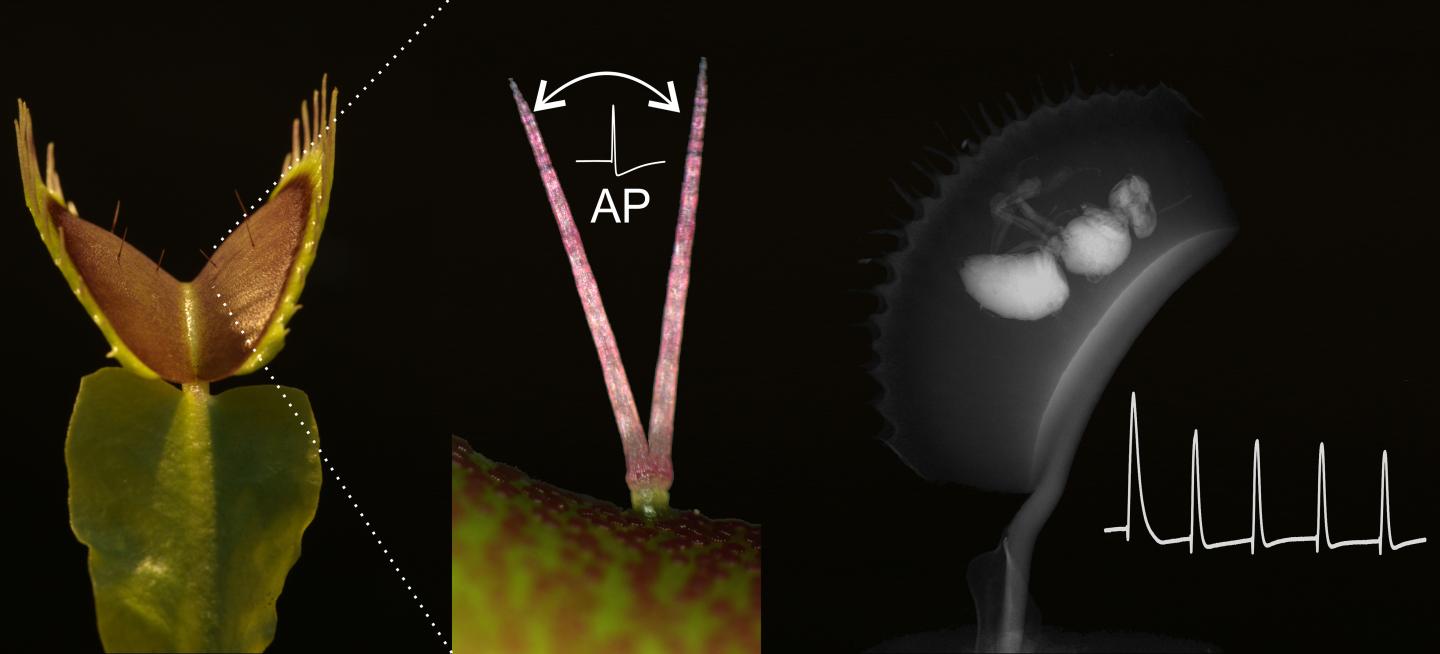New project on a carnivorous plant

Credit: Soenke Scherzer
In its Reinhart Koselleck programme, the German Research Foundation (DFG) supports selected scientific projects. Anyone who wants to succeed with their application must be able to demonstrate outstanding scientific achievements and plan a particularly innovative project.
Rainer Hedrich from Julius-Maximilians-Universität Würzburg (JMU) in Bavaria, Germany, meets these criteria. Over the past few years, funded by an ERC grant from the European Research Council, the professor has repeatedly published new and exciting findings about the carnivorous Venus flytrap (Dionaea muscipula). One of his findings was that this plant can count up to five.
Now Hedrich wants to get even deeper into the mathematical abilities of Dionaea. He also wants to find out how and when plants learned to count during evolution. The DFG is providing him with around 1.5 million euros from the Koselleck programme. The JMU professor will be able to use the money freely for personnel and scientific equipment in line with the scientific progress of the project.
Venus flytrap counts electrical signals
The ability to estimate or count the number of objects is widespread in the animal kingdom. But also plants can do this, as Hedrich has shown with the Venus flytrap. The Venus flytrap lives in a nutrient-poor environment and catches insects and other animals as supplementary food with its folding trap. When an insect lands on the trap and touches special sensory hairs, electrical signals are triggered that spread across the surface of the cells. As soon as the moving prey triggers two signals, the trap closes and holds the victim – now the cycle of prey processing begins.
Hedrich’s team has shown that the Venus flytrap repeatedly counts and stores the number of electrical signals (action potentials) in the course of this cycle. With this information, the flytrap can estimate the size and nutrient content of the prey. “The plant is therefore constantly weighing up whether it is worth continuing the complex digestive cycle or not,” said Hedrich. In this way, it can balance the cost-benefit ratio of the prey catch.
Research programme of the project
Which molecular mechanisms underlie this frequency-dependent decision making? The Würzburg professor now hopes to investigate this in the Koselleck project. “In addition to the components of the action potential, we will also identify the cell types that generate and transmit the electrical signal,” said Hedrich.
The project also uses Dionaea mutants, in which the transmission of stimuli between electrical excitation and the rapid closing of the trap is disturbed. With their help, the core components of the plant’s “short-term memory” are to be identified. By comparing it with other carnivorous plants, the JMU researcher hopes to determine the cellular basis for the process of counting, hapto-electrical signal transduction and the decision-making based on this.
###
Media Contact
Dr. Rainer Hedrich
[email protected]
Original Source
https:/




